SELECT YEAR(OrderDate) 'Year', SUM(TotalDue)
FROM Sales
GROUP BY OrderDate
Order BY OrderDate
How do I add each year together as ONE row? I wrote the query above, but the result still has the TotalDue by Year as individual rows. For example
